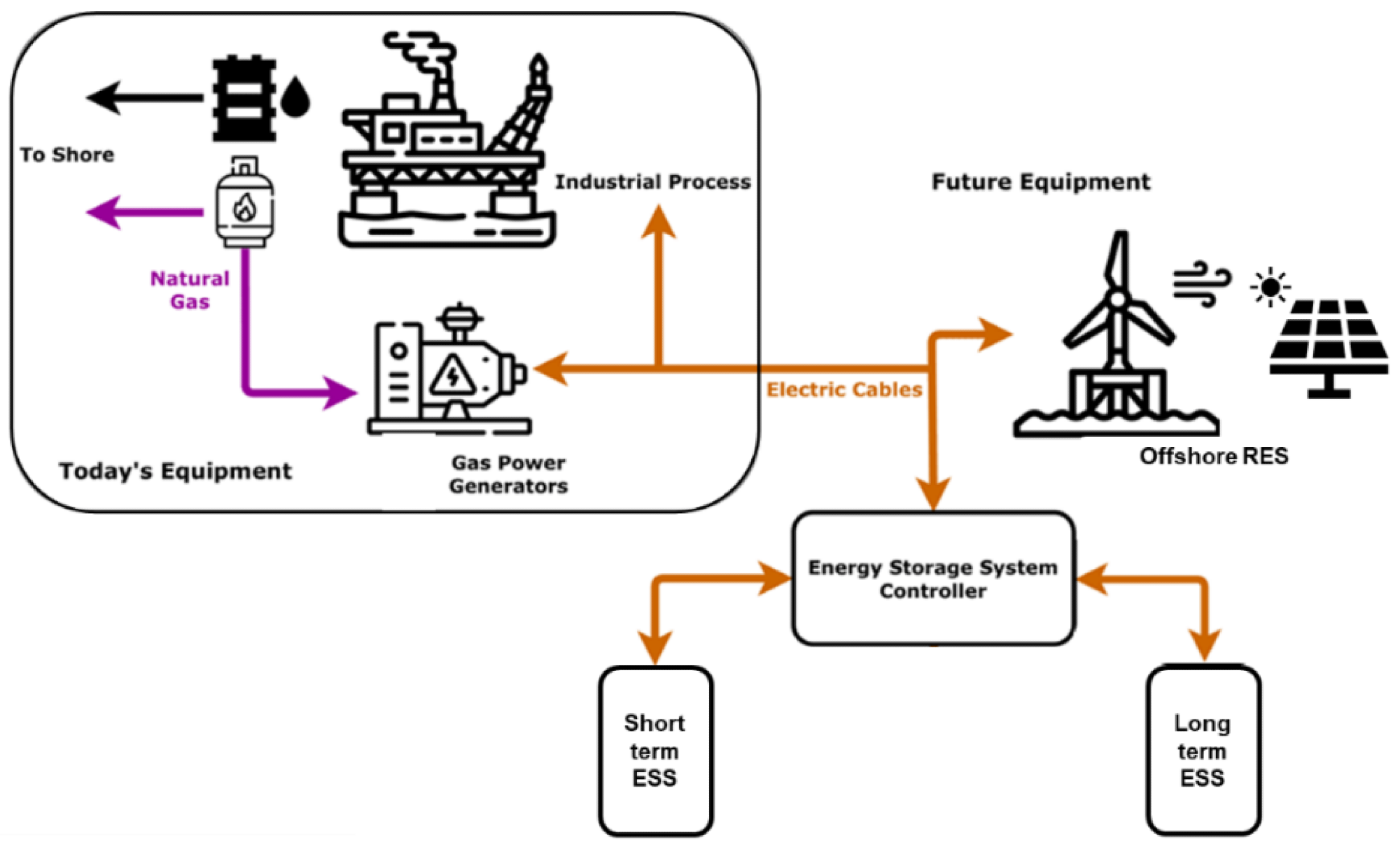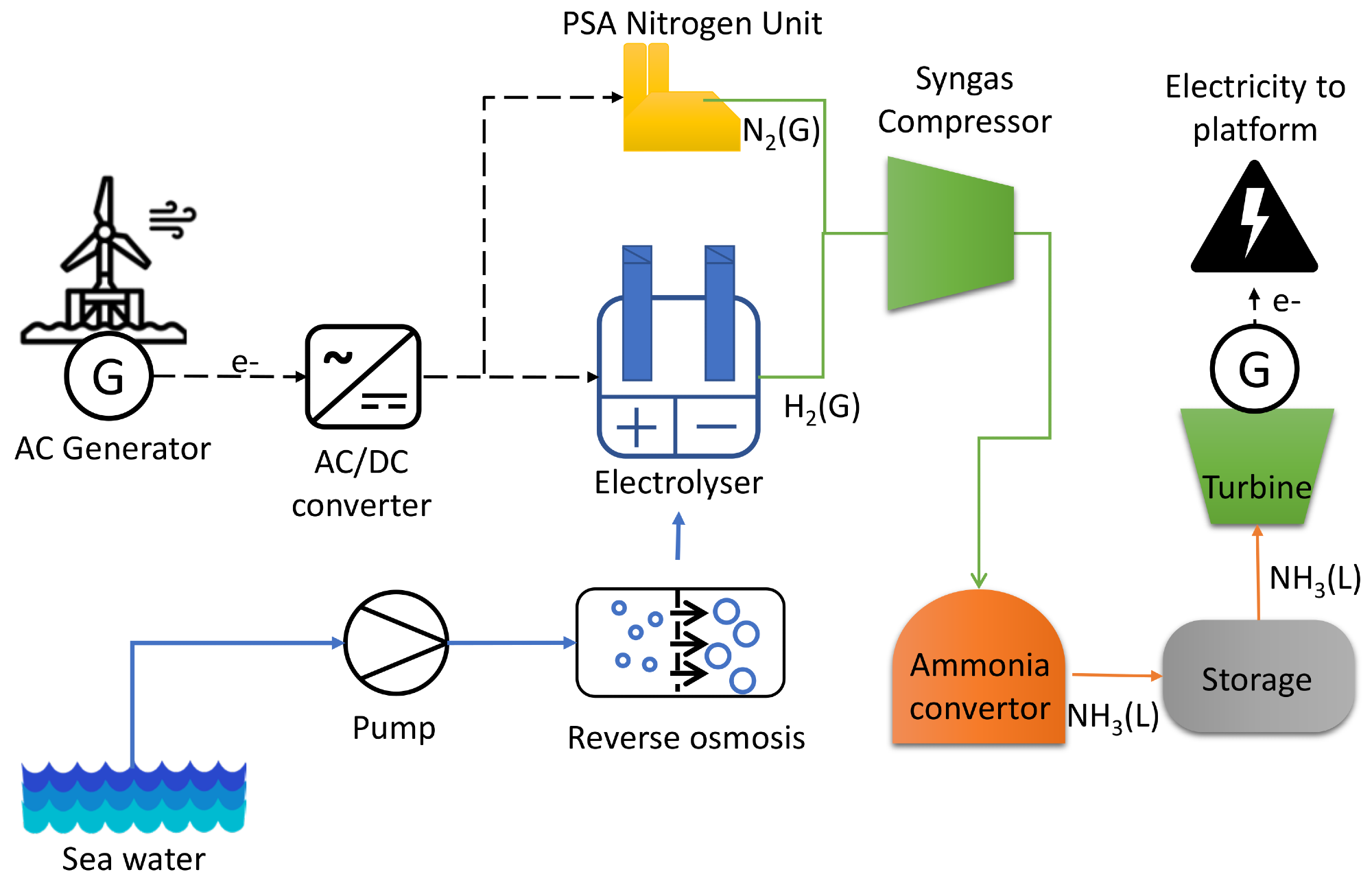Conventional energy generation is based on fossil fuels, which causes a plethora of environmental issues. In Norway alone, offshore petrochemical extraction was responsible for 26.7% of total greenhouse gas emissions in 2020. The majority of these emissions were caused by gas turbines installed on offshore platforms.
Recognizing the scale of climate change and the key role played by offshore oil and gas extraction, there has been an increased focus on technological solutions to improve the sustainability and environmental friendliness of the sector. This is crucial for ensuring that the oil and gas industries meet their net zero carbon targets set out by international agreements like COP26 and the Paris Accords.
With the rise of offshore renewable energy comes the opportunity to improve the sustainability of offshore gas and oil extraction and decrease the sector’s carbon emissions. Furthermore, aside from decarbonization, innovative renewable energy-based solutions also present opportunities for offshore generation and consumption of key energy products such as hydrogen and ammonia.
Several innovative solutions are possible with renewable offshore generation. The shipping industry, for instance, can make use of offshore energy generation by making use of sustainable offshore underground reservoirs. This also has the beneficial effect of reducing onshore land use, which could be better utilized for key commercial activities such as agriculture.
Replacing gas turbines with renewable technologies can significantly reduce the energy consumption of offshore rigs, and by connecting assets to extant sources of offshore renewable energy, infrastructure costs can be significantly reduced. The benefits of switching to renewable offshore generation and storage are many.

Integration of an offshore storage system into an oil and gas platform. Ammonia value chain, including the main components in its production. Image Credit: Arellano-Prieto et al., Energies
Challenges with Renewable Energy Sources
Whilst the benefits of using renewable energy to provide solutions for offshore assets are obvious, there are some key technical challenges that must be addressed before they can be widely implemented.
Complex multiscale dynamics in renewable systems produce random behaviors with solar and wind energy. Additionally, non-stationary and seasonal phenomena can impact the efficient performance of these power generation strategies. Currently, renewable energy systems cannot match the performance of gas turbines, which whilst being environmentally harmful, are stable and not affected by seasonality.
These technical challenges limit the large-scale commercial and industrial penetration of renewable energy into the sector as they cannot meet supply and demand effectively. There must be a sufficient balance between power generation and consumption.
To overcome these issues and improve the commercial viability of renewable systems, studies have investigated the development of support infrastructure and efficient energy storage solutions. Being able to supply a reliable, integrated, season-independent renewable offshore capacity would provide significant decarbonization potential for the oil and gas industries, especially in locations that are vulnerable to supply disruption.
![Operating principle of a wind-turbine-integrated hydro-pneumatic energy storage concept. (Modified from Sant et al. [32]).](https://www.azom.com/images/news/ImageForNews_59853_16615048151268365.png)
Operating principle of a wind-turbine-integrated hydro-pneumatic energy storage concept. Ammonia value chain, including the main components in its production. Image Credit: Arellano-Prieto et al., Energies
The Paper
The focus of the review study in the journal Energies is to fill the current research gap on renewable offshore energy storage systems by proposing a comprehensive assessment methodology. Thus, according to the authors, the paper acts as a stepping stone for future research in this area and the development of industrial-scale integrated renewable systems for the gas and oil industries.
As well as offshore capabilities, the work has the potential to improve onshore renewable energy storage, meaning that the scope of the research is beyond the original research question. This would enhance supply security and off-grid energy storage capabilities. Over one hundred studies in the current literature have been reviewed by the authors.
Research Findings
The capabilities of eleven renewable energy storage solutions have been assessed in the research, including different battery-based, ammonia-based, and hydrogen-based solutions. Eleven key performance indicators were employed to assess their suitability: environmental impact, mass-energy density, discharge duration, footprint energy content, storage capacity, response time, safety, maintenance requirements, efficiency, TRL, and integrability ease.

Ammonia value chain, including the main components in its production. Image Credit: Arellano-Prieto et al., Energies
Of the solutions analyzed within the paper, offshore storage strategies based on lithium-ion batteries and compressed air energy storage display the greatest near-term potential and can meet partial energy demands. Both technologies are mature and can be integrated with current infrastructure. However, for long-term solutions, the similarities between multiple technologies preclude any judgments of their value.
Hybrid storage systems could help to meet generation and consumption demands more effectively and overcome problems with technological maturity in several proposed systems and seasonality issues.
Whilst this is an area of study that is still within its relative infancy, the potential for overcoming sustainability issues is vast. According to the authors, future research attention will require increased attention to lifecycle assessments, risk assessments, and other key research angles. Whilst there are several challenges still to be overcome, this review provides a useful knowledge base for future researchers.
Further Reading
Arellano-Prieto., et al. (2022) Energy Storage Solutions for Offshore Applications Energies, 15(17), 6153 [online] mdpi.com. Available at: https://www.mdpi.com/1996-1073/15/17/6153
Disclaimer: The views expressed here are those of the author expressed in their private capacity and do not necessarily represent the views of AZoM.com Limited T/A AZoNetwork the owner and operator of this website. This disclaimer forms part of the Terms and conditions of use of this website.